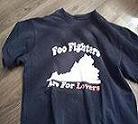Duane Sampson
Posts: 14200
Status: offline

|
This isn't about Vick or fighting dogs but... Pit bull kills 7-year-old Minneapolis boy at home Father who went to his child’s aid in the basement of their home was attacked before he shot and killed the dog. Minneapolis and St. Paul have been seeking ways to deal with dog attacks. By Tom Ford and Joy Powell, Star Tribune staff writers Last update: August 17, 2007 – 12:37 AM Perhaps, his loved ones can only speculate, young Zachary King Jr. had gone to get a puppy in his family's basement, where their full-grown male pit bull was chained. When the 7-year-old boy's older sister came inside to look for him Thursday afternoon, she found him badly bitten and lying on the basement floor. She ran to get their father, but it was too late. The dog killed Zachary, who was about to enter second grade at Hope Academy, a private Christian school in Minneapolis. The pit bull, which had previously bitten other people, went for the boy's throat, police said. The boy's father, Zachary King Sr., 30, tried to intervene but was himself attacked by the dog, which mauled his arm. The father got a gun and shot the dog to death in the family's home in the 3500 block of Humboldt Avenue N. Other family members, including at least two of the boy's three sisters, were home during the attack, which occurred about 1 p.m. Emergency workers rushed Zachary and his father to North Memorial Medical Center in Robbinsdale, where the child was pronounced dead, police said. The latest attack comes as the number of dog bites is up and as the cities of Minneapolis and St. Paul try to find a way to deal with problems related to deaths and injuries caused by pit bulls and several other canine breeds. Even before Thursday's attack, a state legislator touched off debate with his vow to try to outlaw in Minnesota five breeds of dogs, including pit bulls. Police have yet to determine what caused the dog to turn on one of its owners. "There needs to be a detailed investigation to get the facts of what happened here before we jump to conclusions that it's possibly a breed deal," said Tom Deegan, manager of Animal Care & Control for Minneapolis. "They need to have some behaviorists and experts look at what happened." The boy's grandfather, Robert Lee King Jr. of Minneapolis, said he arrived at the family's two-story house in the Folwell neighborhood after getting a hysterical call on his cell phone from the boy's aunt. The grandfather got there just as Zachary was being loaded into an ambulance. Robert King said the male pit bull, whose name was Face, was most often kept in the basement. "I didn't trust that dog," he said, adding that the dog acted quite aggressively toward others and was a big reason he didn't often visit the home. The boy's family also has a female pit bull that family members and neighbors said seemed more friendly and was allowed to move around the house. The pit bulls recently had a litter of five puppies that Zachary and his sisters liked to play with outside. Robin King, Zachary's aunt, said family members who were home when the attack happened told her that the boy had been playing outside when he came in and went downstairs, perhaps to play with the puppies. After his sister found him, she rushed upstairs to wake her father and he bolted to the basement. Police Lt. Amelia Huffman said investigators were piecing together the chain of events, including whether the dog was still attacking the child when his father tried to help him and whether the attack on the boy continued while the father went to get a gun. Animal Care & Control has two recorded contacts with the family about the male pit bull, officials said. In 2005, the dog bit a trespasser on the family's property. That's considered a provoked bite, Deegan said, which would not lead to any official action. In 2006, the dog left the family's property and bit a man. Although that bite was minor, animal-control officers warned the Kings that any further incidents could lead to the dog being declared dangerous. Still, the dog did not meet the criteria to be deemed potentially dangerous, Deegan said. The ordinances are quite specific, he said. Once a dog is declared dangerous, the city restricts how it can be exposed to the public. That includes requiring muzzles and 3-foot leashes in public, as well as fencing and kennel requirements for yards, Deegan said. In this case, the family was doing what would have been acceptable, even if the dog had been previously deemed dangerous, he said. "We can't control what people do in their homes," Deegan said. "The important piece here is that this was an animal that belonged to these folks and tied off in their home. It's terrible, just a terrible tragedy." It was Deegan who retrieved the dead dog from the basement, some time after the female and five puppies had been taken away. Though the dead dog was bloodied, there was nothing to immediately indicate that it was being bred to be aggressive for dog fights, he said. Deegan said it seemed strange to chain up a dog in a house. "I own dogs. I don't tie them off in my house," he said. "It's odd. It'll be interesting to hear, when they're done with their investigation, just what the circumstances were." Targeting specific breeds In June, DFL state Rep. John Lesch announced that he will introduce legislation next year to ban chow chows, wolf hybrids, pit bulls, Akitas and Rottweilers. Lesch was out of the country and couldn't be reached for comment about the fatal attack on Zachary. Under Lesch's proposal, which is already stirring opposition from some animal advocates, anyone owning one of the banned dogs would be subject to misdemeanor charges and could face up to 90 days in jail and a fine of up to $1,000. Keith Streff, director of investigations for the Animal Humane Society, which serves five metro counties, including Hennepin and Ramsey, said there's no doubt the fatal attack on Zachary will become a touchstone for public debate. "This case will quite likely be an interesting paradigm in how this dog and this problem and this community issue is going to be addressed by local communities and law enforcements agencies," he said. In Zachary's neighborhood, feelings ran high. "I feel so sorry for the boy, but this is so preventable," said Marleen Witte. "It makes me angry. This should not have happened." Witte, 55, who has lived on the block for 20 years, said the King family moved in about five years ago and that the father breeds pit bulls. Another neighbor, Tacuma Elliott, 34, said Zachary King Sr. had cautioned neighbor children to always knock before entering the King house because of the dogs. "This is a really bad, terrible freak accident," she said. Bert Robinson, a cousin of Zachary King Sr., described Zachary Jr. as a spunky, tenacious, but quiet boy who adored his father. "He hardly went anywhere without his dad," he said. Reports of dog bites up Last spring, two serious dog attacks within three weeks spurred Minneapolis officials to begin looking more closely at how the city can deal with dangerous dogs. On March 26, Paula Ybarra, 37, was nearly killed by an American bulldog that weighed more than 150 pounds and a smaller pit bull. The dogs bit her in an unprovoked attack at a friend's house in northeast Minneapolis. Ybarra suffered severe injuries, including a crushed trachea, a hole in her esophagus and a crushed artery. Both dogs had previously been deemed dangerous. Then, on April 13, an Akita escaped from a south Minneapolis yard and clamped down on the arm of 8-year-old DeVonta Prince as he walked to school. The dog shook the 60-pound boy, then mauled his scalp and shoulder. A neighbor beat the dog back with a shovel. A state health report released in June found hospitals and emergency rooms saw a 40 percent reported increase in victims of dog bites in the state from 1998 to 2005. Overwhelmingly, the report said, victims are familiar with the attacking dog. It also found that most victims were 4 years old or younger and more likely to be bitten while in the home or the yard. The study, based on hospital discharge data and medical records from the Minnesota Hospital Association, found that 3,600 people were treated in emergency rooms in 2005, compared to 2,600 in 1998. The number of those hospitalized saw a smaller increase, from 89 in 1998 to 95 in 2005. Dr. Heather Day, a co-author of the study, said at the time that part of the increase may be due to hospitals' improved record-keeping, more hospitals filing their information to the Hospital Association and an increase in pet ownership, which she said is a nationwide trend. Day also said young children might be at higher risk because they are less likely to know how to interact with a dog, have slower reaction when a dog makes a threatening move and the youngest of children are at a height that makes them more susceptible to attack than an older child or adult. No dog breeds were identified in the report, Day said, because most hospitals don't specify breed. Also, Day said then, pointing to specific breeds may detract from the point that "any dog breed is capable of biting." A family's deep sorrow About 8 p.m. Thursday, Zachary King Sr., his right arm in a bloodied sling, returned to the home with family members, grabbed some belongings and left soon after. He declined to speak with reporters, though his nephew, Craig Dyar, while holding a picture of Zachary Jr. and his sisters, offered brief comments on behalf of his family. "My uncle and my aunt lost a son," he said. "[His sisters] lost a brother. ... I just want everyone to keep us in their prayers and let us deal with our loss as a family." tford@startribune.com • 612-673-4921 jpowell@startribune.com • 612-673-7750
|

 Printable Version
Printable Version










 New Messages
New Messages No New Messages
No New Messages Hot Topic w/ New Messages
Hot Topic w/ New Messages Hot Topic w/o New Messages
Hot Topic w/o New Messages Locked w/ New Messages
Locked w/ New Messages Locked w/o New Messages
Locked w/o New Messages Post New Thread
Post New Thread